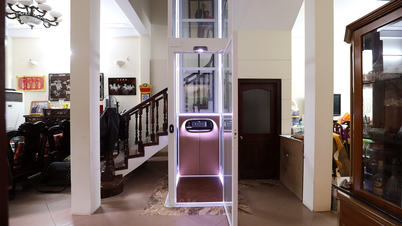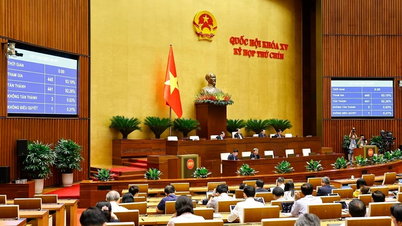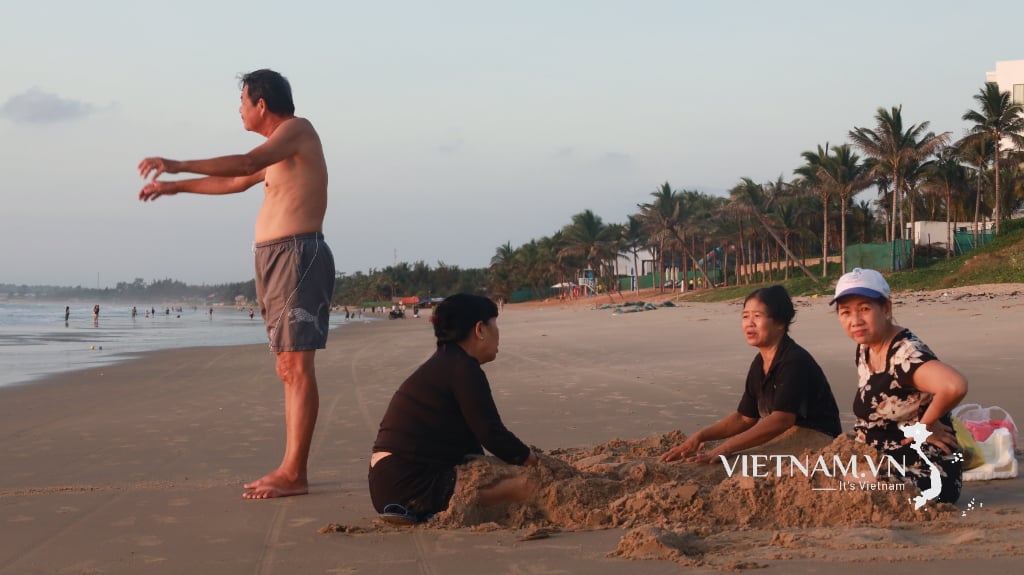Through the case of a tourist being scammed out of more than 1 billion VND when booking a room through a fake fanpage, experts recommend that people should not only view information and 'close the deal' through social networks; they should use multiple channels to check the reputation of the supplier.
Many risks when using online services from unknown suppliers
In a recent warning, the Department of Information Security ( Ministry of Information and Communications ) stated that fraud in the tourism sector is becoming increasingly common, with bad guys taking advantage of customers' trust to commit fraud.
Fake fanpages and websites can create interfaces that are identical to famous resorts, hotels, and homestays or post beautiful images that are not real.
This makes it easy for many tourists to fall for these tricks and pay in advance for unverified services.

After the Lunar New Year 2025, when people have high demand for spring travel and tourism activities, hotel and homestay booking scams continuously occur.
Notably, a tourist was scammed out of more than 1 billion VND when booking a room through a fake fanpage of Minawa Kenh Ga resort ( Ninh Binh ).
After the tourist contacted the consultant and transferred a deposit of 6.5 million VND; the scammer informed the customer that the transfer was incorrect and asked to transfer the money back so that the accounting department could confirm and refund the excess amount.
However, after the victim transferred money many times with an amount of more than 1 billion VND, the subject blocked contact and appropriated the entire amount.
"The case of people being scammed out of more than 1 billion VND when booking a hotel room for a trip has raised the alarm about the increasingly professional tricks and methods of scammers," commented an expert from the Information Security Department.
What to do to avoid being 'trapped' in booking and tour scams
To avoid becoming a victim of such scams, experts from the Department of Information Security have advised people on some points to keep in mind when booking rooms on online platforms.
That is, before deciding to book a room, users need to carefully check the website address. Reliable websites often have security certificates and clear addresses; avoid websites with strange domain names or without security certificates.
People also need to consult with people who have stayed at the hotel they want to book through sites such as TripAdvisor, Google Reviews, or reputable booking sites; do not trust fanpages advertising bookings at prices that are too cheap compared to the market; proactively contact the hotel or homestay directly before paying through contact information on the official site such as hotline numbers or send direct emails to verify information about rooms and services.
At the same time, be wary of requests for early payment; do not follow requests or instructions to transfer money to subjects for reasons such as incorrect text message syntax, money being stuck on the system...; do not download strange applications or click on unknown links from third parties...

Informing VietNamNet reporter, Mr. Thai Huu Ly, Head of Service Development Department, Vietnam Internet Center - VNNIC (Ministry of Information and Communications) said: From the specific incident above, people should not just view information and "close the order" through social networks, when they do not know clearly the information of the service provider.
According to Mr. Thai Huu Ly's analysis, currently, many consumers have the habit of ordering or closing deals through social networking platforms such as Facebook, Tiktok... without carefully checking the origin of the business.
Therefore, scammers often take advantage of this by creating international domain name websites or creating fake fanpages to deceive customers. These pages often do not need to verify information such as addresses and official contacts, making it difficult for consumers to verify their legitimacy.
When an incident occurs, it is difficult for customers to complain or receive support from social media platforms.
To ensure safety, according to VNNIC experts' recommendations, consumers should prioritize using services through websites with the domain name ".vn". When doing business in the Vietnamese market, businesses often register the national domain name ".vn" to increase legitimacy and trust.
“Authentication, high security and better legal support are the outstanding benefits of using a .vn domain website,” VNNIC experts emphasized.
In addition, before using any online service, users should carefully check the website's origin through the tracuutenmien.gov.vn system and prioritize using official platforms to protect their own interests.
“Looking up website and domain name information will help users identify official sources of information, contributing to preventing and stopping fraudulent acts related to the use of domain names on the network environment,” VNNIC experts added.

Source: https://vietnamnet.vn/tu-vu-lua-dat-phong-qua-fanpage-gia-khong-nen-chi-chot-don-qua-facebook-2371947.html

























































































Comment (0)